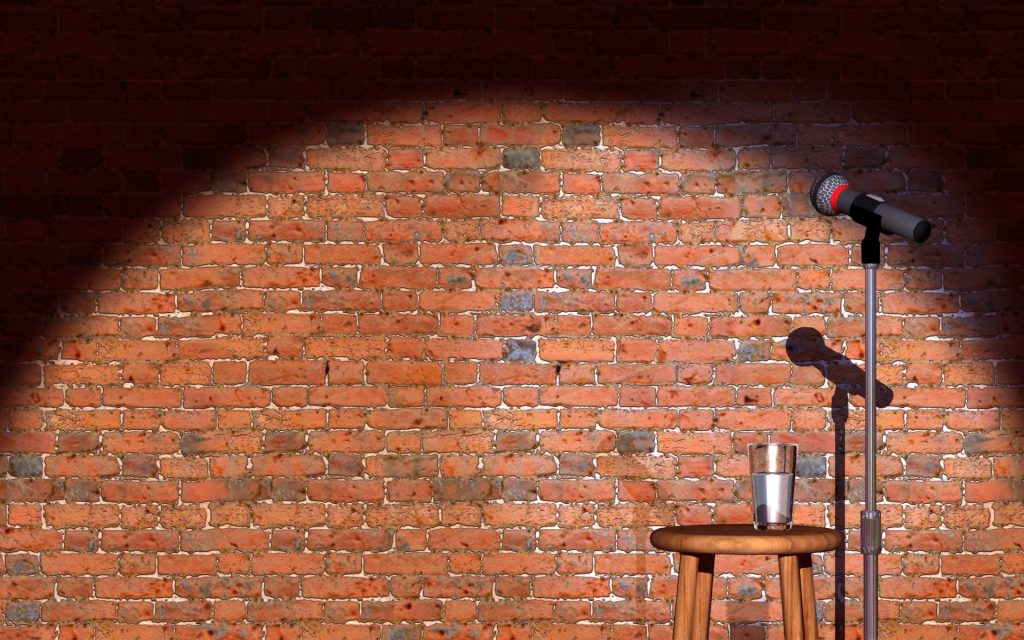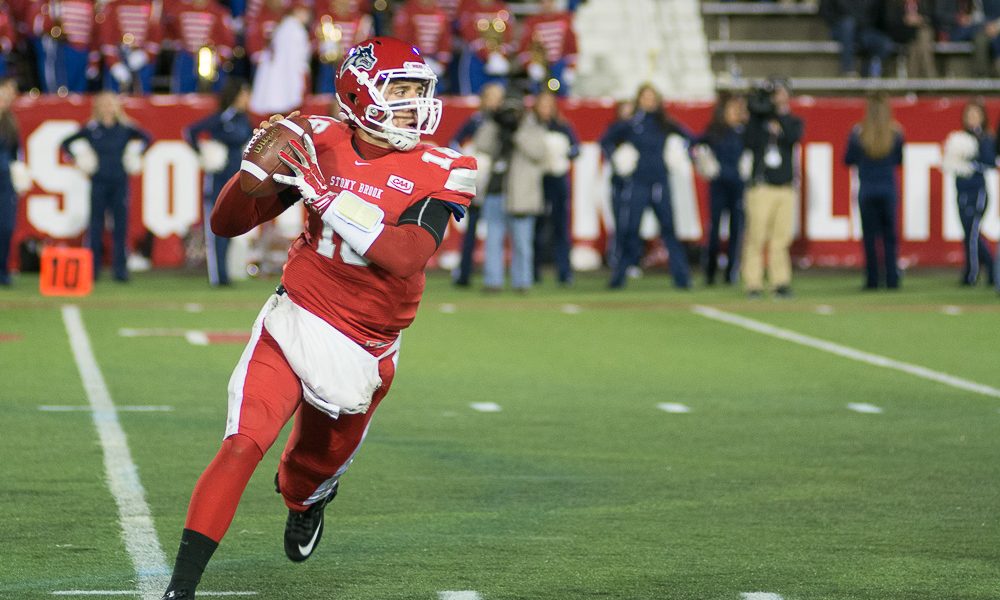It’s scary to see funny people get serious.
“If people ask you what you do and you say that you’re a comedian and you haven’t been on TV, it is an upward climb of trying to justify yourself,” said Mike Lawrence, a comedian who has been on Conan’s late night show twice and has had a 30 minute special on Comedy Central, yet he said he remained poor.
That quote comes from the YouTube channel Modern Comedian, created by comic Scott Moran. Every video starts with a somber piano score like something out of a war documentary. Comedians like Lawrence speak with sullen faces about the several clubs a night they would run in between, as well as the bad shows, the bad crowds, and the little money they got for all their effort.
The most common image of a comedian is that of a confident humorist plying their trade on stage. Behind the scenes however, a comedian’s life is often a constant struggle. Can the comedy scene truly be as dispiriting as it seems? Are those vignettes that citizens see on Comedy Central or YouTube really representative of today’s comics in our modern and digital age?
Bringer Shows, and the Dreadful Cycle of Starting Out
The ever-present fear of the comedy realm is getting locked in the constant open mics and small-paying bringer shows of the beginners cycle.
“It is not a good place for a comedian to be for a long time. It’s depressing. There’s no audience,” said comedian Stevie “GB” Gianturco. Starting comedy in 1991, Stevie GB was stuck in a cycle of bad club managers and false promises that brought him to quit comedy in the late 90’s. He came back to the field several years later.
That cycle of small-time comedy is often exacerbated by many clubs doing “bringer” shows, which require comics to bring a certain number of audience members to pay for the show. The problem is they are often the only shows available starting out, but they rarely help expand a comedian’s audience. These bringer shows and open mics are often the only way beginning comics get the stage time that is crucial to honing their craft.
“For a very long time, you’ll suck,” said comedian Ellen Karris. She said that a comedian isn’t really “into it” until he or she has worked on the scene for five years or more.
“You have to pay your dues, and you have to go through a lot of bad and horrific experiences,” she said.
After Stevie GB came back to comedy, he tried a different approach than focusing on getting stage time. “I approached bookers and offered myself for free to do spots on their shows.” Eventually, it worked, but, he said it only happened because he had used those beginner platforms to build his standup.
The modern comedy scene is in flux. A few decades ago, many bars used to be platforms for comedians. In today’s field there is little money to be made just by doing the club rounds.
Karris, who worked as an accountant before breaking into comedy, said that the only way to make consistent money in modern stand up is through private bookings.
“Now, it’s about private gigs, it’s about fundraisers. It’s a different dynamic. Now you have to find an agent or a booker who books these types of venues,” she said. “It’s a hustle. You have to have an entrepreneurial spirit to do this. You really do.”
It’s hard enough for comedians starting out to practice comedy full time. If a comedian gets a day job that pays enough to live, the workload doubles.
Up-and-coming comedian Joe Giarratano works full time as an accounts manager for Trustpilot, a business review company, and spends the rest of his time in clubs trying to gain notice.
“Sometimes, working in an office all day can be exhausting,” Giarratano said. “You leave, and you’ve just got yelled at by 10 customers in the last couple of hours. I just want to go home and chill out, sit on my couch and wind down. But you say ‘this is what I want to do,’ so I spend an hour at the club instead.”
Doing Everything and Anything
While it is rare for standup comedians to have anything like a consistent job on the scene, there are other forms of comedy like those in improv or sketch shows which propose a slightly more stable job position at the risk of getting less public notoriety.
Comedy writer and sketch artist Zack Phillips has written on sketch teams for the Upright Citizens Brigade in New York City for the past three years and has worked on the UCB internet video team. He was able to move up from the UCB’s comedy classes to writing on their sketch teams. He finds many benefits to working consistently with one company.
“It is nice that on an improv team, you know you are going to have a show the same time and week. And you don’t have to worry about working real hard to get an audience.”
On the internet, building an audience takes time and often requires a innovative idea for a YouTube channel. More importantly, it requires the time to put out videos on a consistent basis. But the fastest way to gain rampant popularity is by having a video go viral.
Viral videos are long shots. The comic has to meet those incomprehensible requirements at just the right time and place to get that sort of traction.
Those who do go viral, often have much easier careers ahead of them. As part of comedian Vic DiBitetto’s series of vignettes on YouTube, he uploaded the video “Bread and Milk” which exploded on YouTube. It currently has over 13 million YouTube views. Since then, his career has truly picked up steam.
“If you see it statistically, how many people does it happen for and how many people does it not?” said Stevie GB about the impact of viral videos. “I don’t think it has lasting power. It does for very, very few people.”
Karris has a pretty consistent YouTube channel as well as an online radio show on BBOX, Giarratano hosts a podcast, and Stevie GB has a YouTube channel as well as a short series of videos about how a starting comedian gets into the comedy scene.
“Just like any job, you want to diversify your portfolio,” said Giarratano. A comedian should do a little bit of everything, while keeping it manageable.
“Your name has to be buzzing for something,” he said.
The Brotherhood of Comedy
It’s hard to break into comedy, but the act is also voluntary. Like Mike Lawrence said, declaring oneself a comedian is just asking for sideways glances from strangers and family members alike. Once a burgeoning comedian has exhausted all friends and family to drag over to bringer shows, the idea of going it alone seems that much more daunting.
Phillips often works on teams of multiple people, and feels like it only helps with the creative process. “It’s just more fun working with other people. If you have great chemistry with a person or people then the end product is greater than the sum of it’s parts.”
Comedians often find the that the people who best understand what each of them go through, is each other.
“Comedians are each others’ support group,” said Giarratano. “When we’re driving from from a gig at 1 a.m. on a Saturday morning, you know other comedians are doing the same. We’ll call each other. You kind of keep each other company.”
Comedians Are a Different Breed of People.
Seinfeld once joked that humanity’s first greatest fear is talking in public, and the second is death. In that way, comedians are cut from a different cloth. They become so used to talking to groups of people that revealing often very personal anecdotes becomes part of the expectation. In a way, the reveal of such devastating narratives of comics’ lives, like those seen on Modern Comedian, is really an extension of their act on stage.
For comics like Giarratano, revealing such intimate items becomes routine. “Regular people might not walk up to somebody they don’t know and talk about something horrific that happened to them. A comic will joke about these things. For comedians, it’s never really weird. It’s part of the art.”
The Modern Comedian videos are not expressly funny, but in essence they are only an extension of what the modern comedian does on a daily basis. They unabashedly tell the audience stories about their lives, no matter how dark they may get or seem. They do it because the comedy then becomes more real and relatable.
“Comedians are some of the most sad and depressed and bitter and angry,” said Stevie GB. “Because they love to do it.”




Comments are closed.